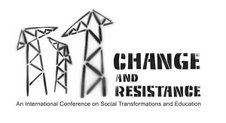Dr Kazimierz Musiał
University of Gdańsk
Through stipulating certain systemic solutions in higher education and organising the educational policy in a given way states influence their citizens’ ability to deal with the social change. Even though modern society seems to favour individuals with a strictly defined life purpose, it is often the experience of collective learning and the practice of free and open dialogue experienced during the study period at the university that makes it easier for the graduates to form creative communities. The longer the process of education with an experience of higher education, the more prepared the individuals are to collaborate towards peaceful solutions when encountering problems. Needles to say, they are better prepared to serve and participate in their community.
In the Nordic countries the long lasting tradition and practice of life-long learning and extensive access to higher education provide good foundations for preparing individuals to cope with the vagaries of modern societies. Furthermore, the whole idea of the Nordic welfare state being a progressive model of social engineering, it offered social change as an inevitable component of the social system. By providing good conditions for attaining higher education, the state has created a class of highly educated citizenry that was able to generate and support the social change and social engineering.
Dealing with the Nordic countries and the welfare state ideology is interesting as some authors considered their solutions as possible export goods to implant in Central and Eastern Europe after the fall of communism in the late 1980s. The missing component that often goes unattended has been the level of education that could guarantee a broad qualified dialogue and compromise instead of principal resistance.
This paper will ascertain the importance of higher education sector in the Nordic countries in the context of peaceful conflict resolution so widely practiced in these countries. It will be analysed to what extent their welfare state and public policy in general have stimulated or are a product of the expansion of higher education. Higher education as a means of social advancement and a means of fostering dialogue in a welfare state will be studied and the broad Nordic context considered.

No comments:
Post a Comment